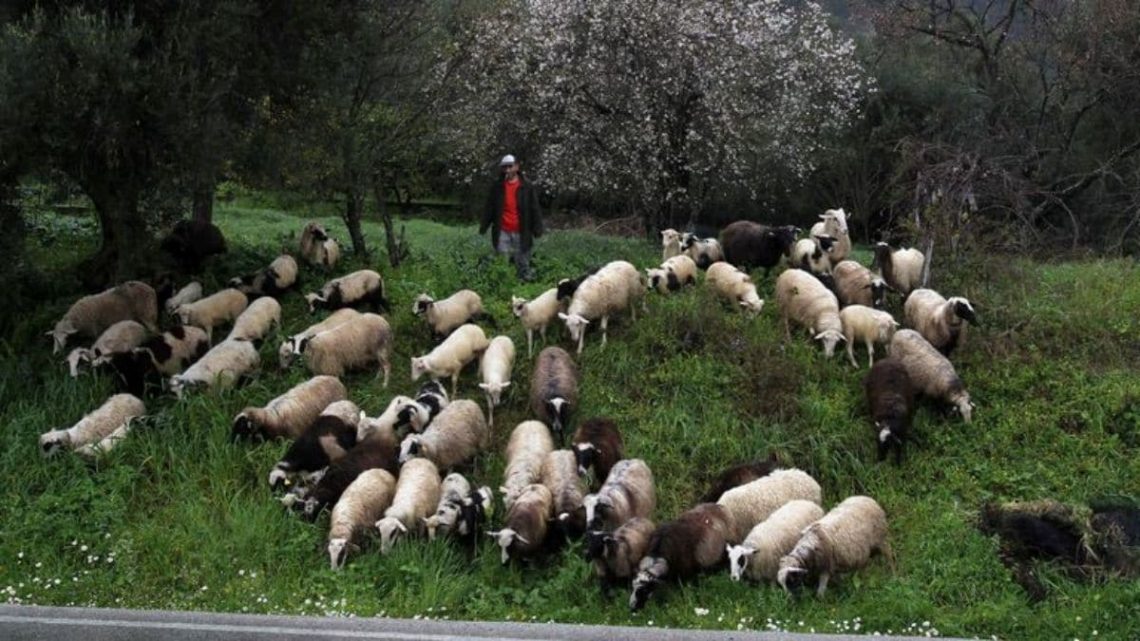A pastoral crisis is brewing in Greece as it combats a deadly outbreak of “goat plague.”
In response to new cases detected over the weekend, the country has banned the movement of sheep and goats across pastures to contain the highly contagious infection, the agriculture ministry announced.
Known formally as Peste des Petits Ruminants (PPR), this virus does not affect humans but is fatal for goats and sheep, killing between 80 per cent and 100 per cent of those infected.
Since the outbreak’s detection earlier this month, thousands of animals have been culled in central Greece so far with authorities worrying about further spread of the disease.
But what exactly is this disease, and what does its impact mean for Greece? Let’s delve deeper.
The origin
The Peste des Petits Ruminants was first reported in 1942 in Côte d’Ivoire, West Africa.
Since then the disease has spread globally to large regions in Africa, the Middle East, Asia and Europe.
As per the Food and Agriculture Organisation of the United Nations, more than 70 countries are affected or at high risk of getting the viral infection. Those at-risk countries are home to approximately 1.7 billion heads – around 80 percent – of the global population of sheep and goats.
According to World Organisation for Animal Health (WOAH), PPR is transmitted by close contact, and confinement favours outbreaks. Secretions and excretions of sick animals are the sources of infection among animals.
How is Greece combating the outbreak?
The virus was first detected on July 11, in Greece’s central Thessaly region and has since then spread to the Larissa region and in Corinth in the south, where authorities have detected new cases.
Georgios Stratakos, a senior agriculture ministry official, revealed to Reuters that about 8,000 animals have already been culled in Thessaly, with regional governor Dimitris Kouretas confirming another 1,200 will be culled later this week.
The European Union’s protocols necessitate the culling of entire flocks once a case is detected to prevent further spread.
The World Organisation for Animal Health (WOAH) has outlined the severe symptoms animals exhibit, including fever, discharge on the eyes and nose forming a crust, coughing, foul-smelling breath, and diarrhoea. These symptoms often lead to “severe morbidity and mortality rates” among animals making the chances of their survival bleak.
To further prevent the spread, the authorities also have to disinfect the entire affected farm and test animals in nearby areas for the disease.
According to Stratakos, more than 200,000 animals from the central region have been tested for the contagious virus.
In response to new cases detected over the weekend, the ministry has banned the movement of sheep and goats for breeding, fattening, and slaughter throughout Greece. The ministry’s statement emphasised, “Tightening the security measures across the country is deemed necessary for preventive reasons and is aimed at limiting the spread and eradicating the disease.”
Urgent meetings with local authorities have been held, and an investigation is underway to determine the source of the outbreak, with “suspicious imports” from abroad not being ruled out.
Greece is also coordinating with the EU and veterinary services of other member states to manage the outbreak. While, there is no specific treatment for this disease, only a vaccine can help in its prevention.
The impact
The outbreak has a profound impact on Greece, which is home to Europe’s largest goat population.
According to the European Union’s Agriculture, Forestry, and Fisheries report for 2020, Greece has approximately 3,625,000 goats that play a crucial role in making the country’s trademark product: feta cheese.
Made from at least 70 per cent sheep’s milk and at least 30 per cent goat’s milk, the dairy product is a major economic driver for the European nation.
Feta exports are in demand worldwide, According to a study by Allied Market Research estimates, the country exported over 65 per cent of its 127,000 tonnes of feta in 2022, achieving a record value of $658 million.
As per WOAH, the goat plague can cause annual economic losses of up to $2.1 billion. But beyond the financial impact, the outbreak jeopardises the livelihoods, food security, and employment of families dependent on livestock.
With input from agencies
Link to article –
What is ‘goat plague’ that has forced Greece to ban the movement of livestock?

